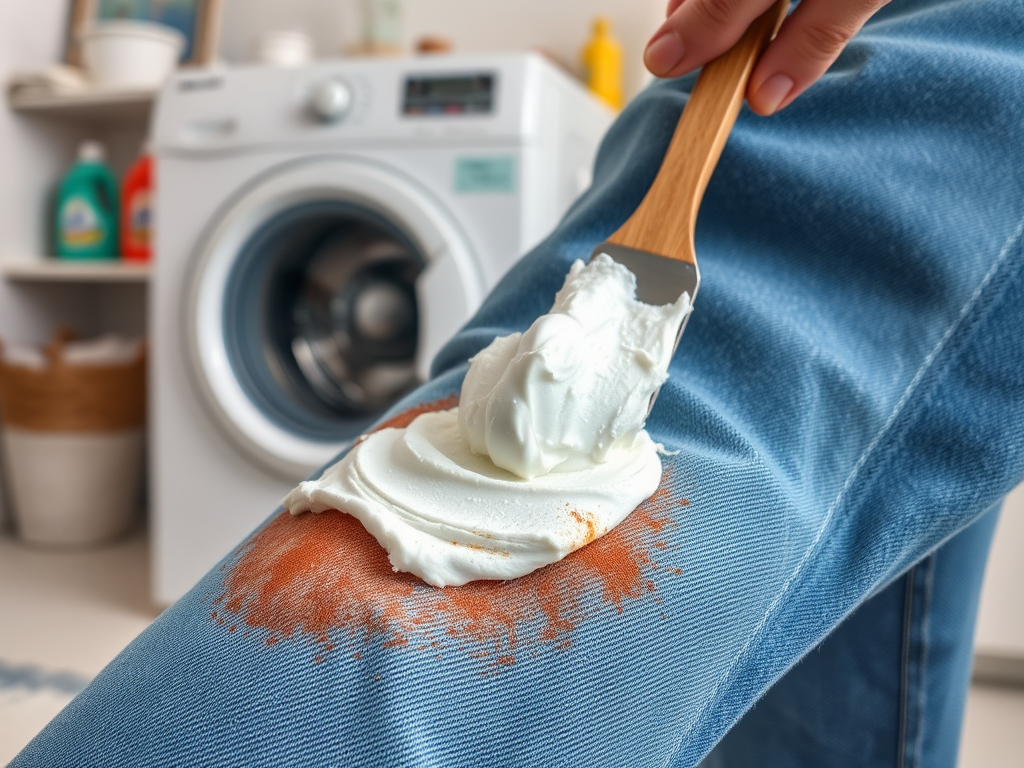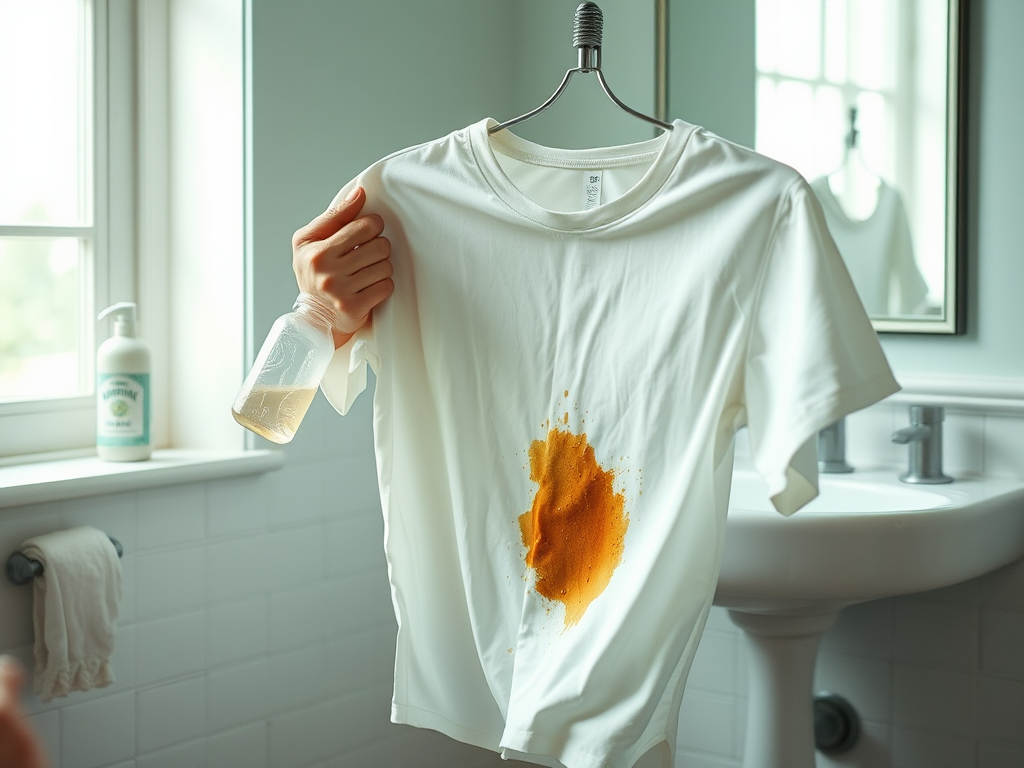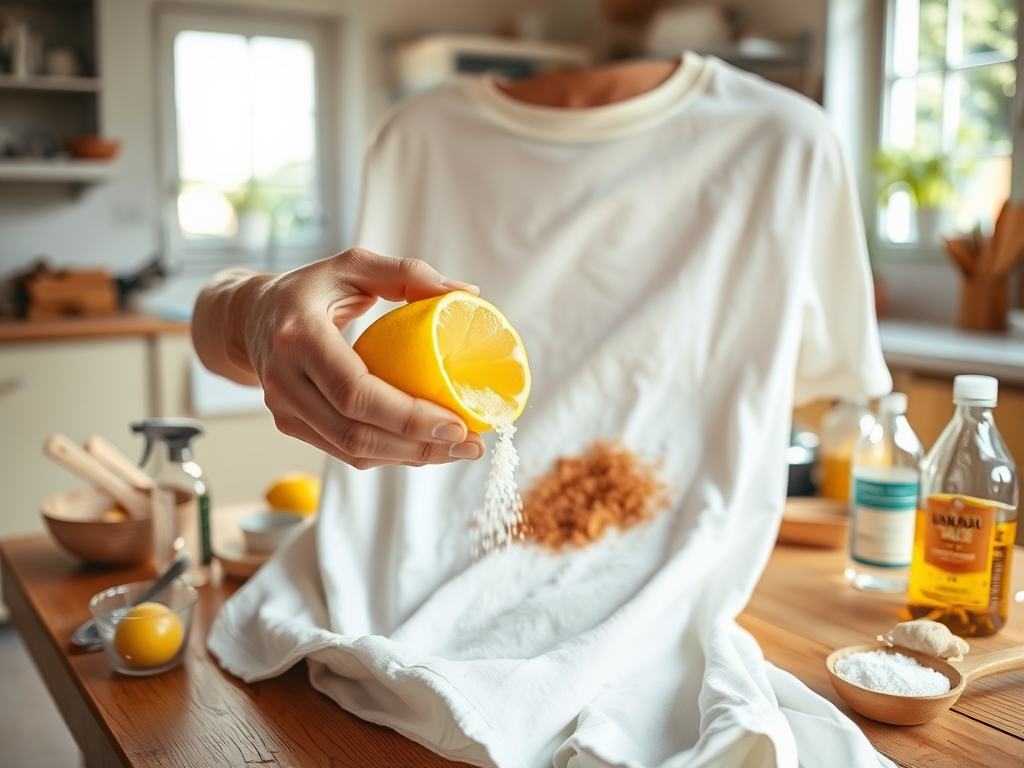Rust stains on clothing can be a source of frustration for many, often appearing out of nowhere and seemingly refusing to budge. Whether it’s from outdoor furniture, tools, or even accidental spills, rust stains can ruin your favorite garments. The good news is that you don’t necessarily need harsh chemicals to tackle these stubborn blemishes. Natural remedies can be surprisingly effective and are often gentler on fabric, ensuring your clothes remain in great condition. By harnessing the power of easily accessible ingredients, you can restore your clothing without the worry of damaging the fibers or harming the environment.
In this article, we delve into the world of rust stains, exploring their causes and how natural remedies can effectively restore your garments to their former glory. By understanding rust stains and what can be done, you empower yourself to combat these pesky marks with items likely found in your pantry. You’ll not only save money but also take a step towards utilizing sustainable cleaning solutions that are safe for your family and the planet. So let’s explore the natural remedies that can help you say goodbye to rust stains once and for all!
Understanding Rust Stains

Rust stains originate from iron oxide, a compound that forms when iron reacts with moisture and oxygen. These stains can easily transfer to fabrics, causing unsightly discoloration that can be tough to remove. Stains often occur when wet clothing comes into contact with rusty surfaces or when storage conditions allow for moisture accumulation. Natural fibers, like cotton and linen, tend to absorb rust stains more readily than synthetic fabrics. This highlights the importance of understanding where rust stains are most likely to occur. Being aware of common rust sources can assist you in avoiding future mishaps.
Natural Remedies for Rust Stains

Using natural remedies to combat rust stains is not only effective but also cost-efficient. Here are some tried-and-true methods that can help you remove these tough stains from various fabric types:
- Lemon Juice and Salt: The acidic nature of lemon juice combined with salt creates a powerful stain fighter.
- Baking Soda Paste: This simple solution uses the abrasive qualities of baking soda to lift stubborn stains.
- Vinegar and Dish Soap: The combination of vinegar’s acidity and the grease-fighting properties of dish soap works well for rust marks.
Lemon Juice and Salt
To use this method, simply squeeze fresh lemon juice directly onto the rust stain, ensuring it’s fully saturated. Then sprinkle a generous amount of salt over the area and gently rub it in using a clean cloth or your fingers. Allow the mixture to sit in the sun for about 30 minutes, as sunlight can enhance the stain-removing properties of the lemon juice. Afterward, rinse the fabric with cold water and check if the stain remains. If necessary, repeat the process until the stain is gone. Be cautious with colored fabrics, as lemon juice can sometimes lighten the color.
Baking Soda Paste
Creating a baking soda paste is simple and effective. Mix three parts baking soda with one part water to form a thick paste. Apply the paste directly onto the rust stain, covering it well. Let it sit for at least 30 minutes to allow the baking soda to break down the rust particles. After the designated time, gently scrub the area with a soft brush, and then rinse thoroughly with cold water. This method not only removes stains but also deodorizes the fabric, leaving it fresh.
| Ingredient | Function |
|---|---|
| Lemon Juice | Natural acid that breaks down rust |
| Salt | Abrasive that helps lift stains |
| Baking Soda | Mild abrasive and neutralizer |
| Vinegar | Natural acid that dissolves rust |
Vinegar and Dish Soap
Combine equal parts of white vinegar and dish soap in a bowl, mixing them thoroughly. Apply this solution to the rust stain and allow it to sit for about 30 minutes. The vinegar will work to dissolve the rust while the dish soap tackles any remaining greasiness. After the time has elapsed, rinse well with cold water. For persistent stains, you may want to repeat this process until your fabric looks like new. Be mindful of the type of fabric; while this method is suitable for many materials, delicate fabrics should be treated with caution.
Additional Tips for Preventing Rust Stains
Taking proactive measures can help you avoid rust stains in the first place. Here are some useful tips:
- Store iron items in a dry, moisture-free environment to minimize rust formation.
- Use rust-proof storage containers for items that may come into contact with clothing.
- Regularly check laundry for any metal objects before washing, as they may cause rust transfer.
Consider using fabric protectors that can form a barrier against stains. Regularly clean and maintain items like outdoor furniture to prevent rust build-up, which can inadvertently lead to stains on your clothing. Finally, educating everyone in your household about handling potentially rust-inducing items can significantly help in preventing future issues.
Conclusion
Addressing rust stains doesn’t have to be a daunting task with the right knowledge and tools at your disposal. Utilizing natural remedies like lemon juice, baking soda, and vinegar can effectively lift those unsightly marks without damaging your fabrics or the environment. By applying these methods as soon as you notice a stain, you’ll increase your chances of complete removal. Always remember that patience and care are essential; some stains may need repeated treatments. Embrace these natural solutions next time you face rust stains, and enjoy the satisfaction of restoring your garments with ease and effectiveness!
Frequently Asked Questions
- Can all fabrics be treated with these natural remedies? Yes, but always test on an inconspicuous area first to ensure there’s no adverse reaction.
- How soon should I treat a rust stain? The sooner you treat a rust stain, the better the chances of removing it completely.
- Will these methods work on set-in rust stains? While they may be less effective, repeating the treatment can yield better results on older stains.
- Is it safe to use these remedies on colored fabrics? Generally, yes, but always perform a patch test before applying these remedies broadly.
- What if the rust stain doesn’t come out after trying these methods? If the stain persists, consider seeking professional cleaning services as a last resort.
